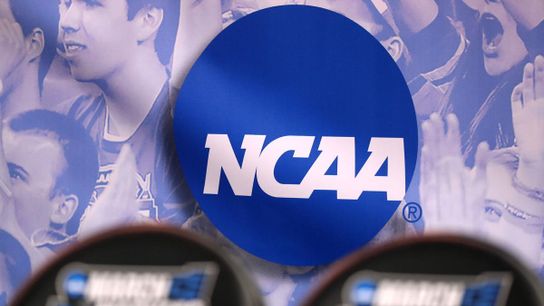It could be the NCAA's last gap at moral and legislative authority. Or it could be, as Andy Staples said Friday night, dinosaurs trying to stop the meteor.
Either way, Dennis Dodd of CBS Sports on Friday reported the NCAA has armed its enforcement arm to look into the collectives that have sprouted like mushrooms across major college football.
As Ohio State AD Gene Smith, a member of the NIL working group that the NCAA has tasked with looking into the state of NIL.
The thinking seems to be that no one has a problem with the softball shortstop striking a deal with the local frozen yogurt shop, but everyone has a problem with players like Pitt wide receiver Jordan Addison being lured into the Transfer Portal on an alleged promise of NIL deals that are really just thinly-veiled pay-for-play arrangements.
"What's happening in that space is what we were all fearful of," Smith said. "What's going on -- on campuses [with existing scholarship athletes] -- currently is fine. It's the inducement pieces. We gotta kill that. If we don't kill that now, forget it."
Of course, the NCAA spent two years studying the issue, with the original working group setting up guidelines that was supposed to prevent inducements, as the NCAA calls them, of transfers and recruits. Then the NCAA lost the Alston case 9-0 last summer and opted to do nothing, fearful of getting sued into oblivion.
And so any punishments of schools would have to explain how they are not in conflict with the Supreme Court decision, which ruled that colleges cannot interfere with their athletes' earning potential, so long as those earnings were "tied to education."
The attempt will be to catch schools who may be working with their collectives to arrange specific payments for specific athletes, not necessarily to punish the athletes for taking money the system now says they can have.
This, from the same organization that still hasn't gotten around to prosecuting the basketball violations that the FBI laid at the enforcement department's doorstep more than five years ago.
If boosters are found to have collaborated with a program to use NIL benefits as an incentive to lure prospects to the school, the penalties could be severe, Smith said. Options include cutting scholarships, instituting recruiting restrictions and hitting programs and perhaps coaches with lack of institutional control penalties. Those are punishments associated with Level I violations.
"The booster [penalty] is disassociation, primarily," Smith said, "but the schools, if they're culpable ,that's when you can go deep."
Needless to say, it will be interesting to what comes of this, if anything at all.
